Business thrives on change, but what happens when your contract becomes outdated due to unforeseen circumstances?
Contracts are often viewed as static documents, set in stone once signed. However, the reality is that business needs to evolve.
This blog post dives into the world of contract amendments, exploring how to modify existing agreements to keep pace with changing circumstances.
What is a Contract Amendment?
A contract amendment is a formal document that modifies an existing contract. It’s used to make changes to specific terms, clauses, or sections of the original agreement, while keeping the core framework intact.
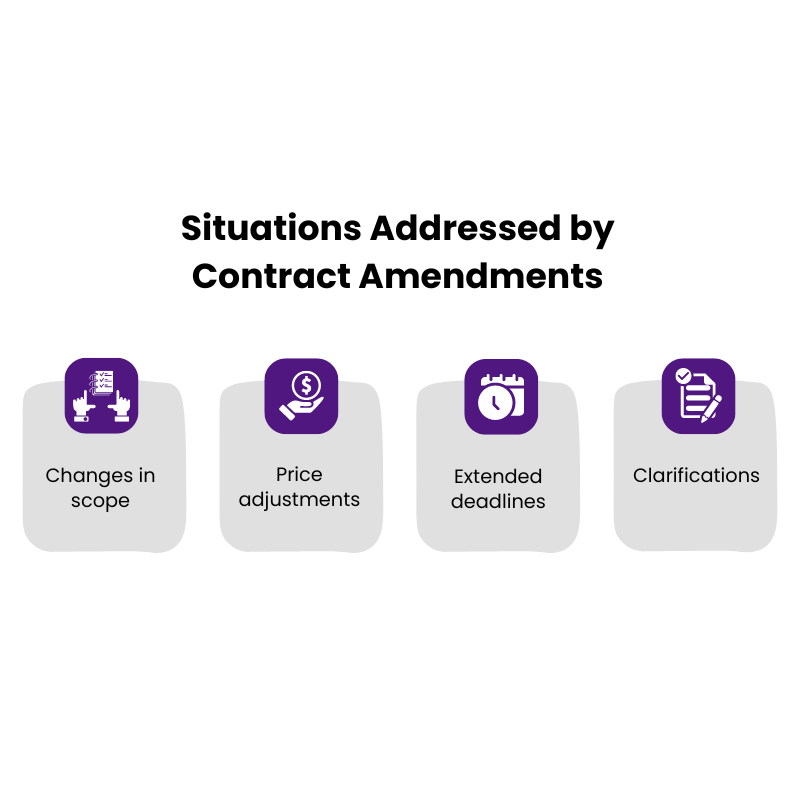 Amendment to contracts can address various situations, such as:
Amendment to contracts can address various situations, such as:
- Changes in scope: Perhaps the project requires additional functionalities not originally envisioned. An amendment can define these new elements and adjust timelines and budgets accordingly.
- Price adjustments: Material costs or labor rates might fluctuate. An amendment can reflect these changes, ensuring fair compensation for both parties.
- Extended deadlines: Unexpected delays can occur. An amendment can formally extend the project completion date to avoid contract breaches.
- Clarifications: Sometimes, ambiguity in the original wording can lead to misunderstandings. An amendment can provide clear, concise interpretations to prevent future disputes.
Contract Amendment vs. Addendum
What is the difference between an addendum to a contract and an amendment to a contract? The terms contract amendment and addendum are often used interchangeably, but there’s a subtle difference.
An amendment modifies existing terms, while an addendum introduces entirely new provisions that supplement the original agreement. Think of an amendment as editing a document and an addendum as adding a new page.
How to Make an Amendment to a Contract
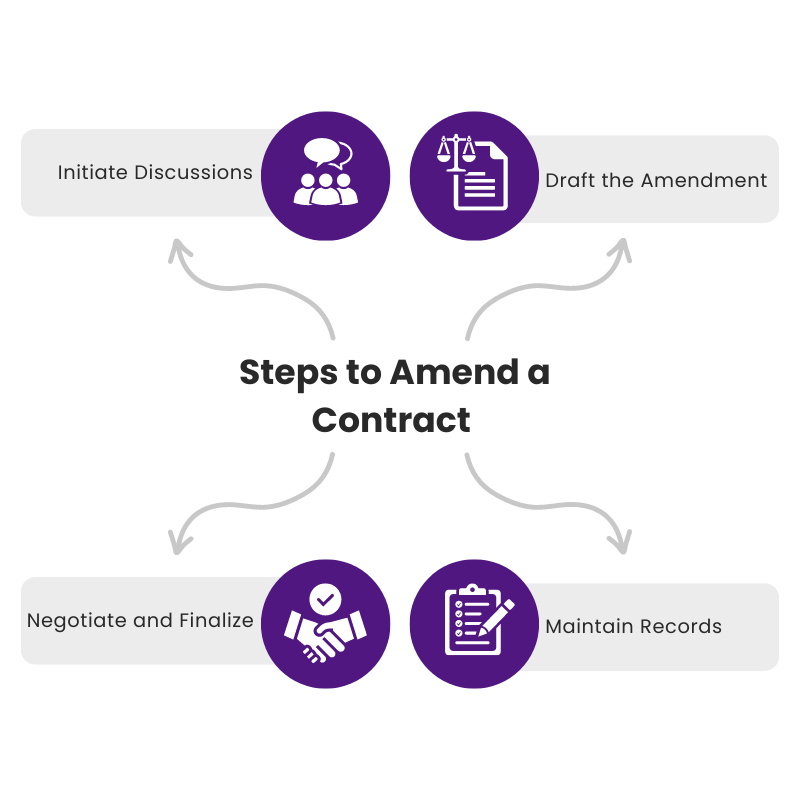
The process to amend a contract typically involves these steps:
- Initiate Discussions: The decision to make a change to a contract usually arises from mutual agreement between the parties involved. Open communication is key to ensure everyone understands the proposed changes.
- Draft the Amendment: A formal document outlining the specific modifications should be drafted. This document should clearly reference the original contract and highlight the clauses being amended. Consider using a contract amendment template (provided later in this post) as a starting point.
- Negotiate and Finalize: Both parties should carefully review the proposed amendment. Negotiations may occur to ensure all terms are fair and agreeable. Once finalized, both parties should sign the amendment.
- Maintain Records: Keep a copy of the signed amendment with your original contract for future reference.
Important Considerations for Contract Amendments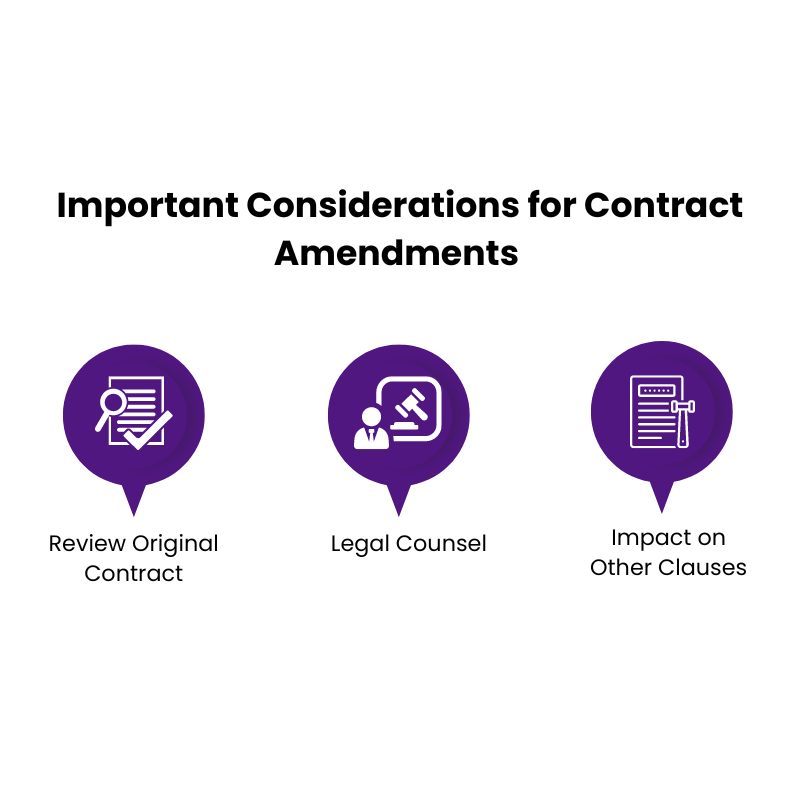
- Review Original Contract: Before drafting an amendment, thoroughly examine the original contract, particularly clauses related to amendments. Some contracts may specify a specific format or procedure required for amendments to be valid.
- Legal Counsel: For complex contracts or significant modifications, consulting with a lawyer is highly recommended. They can guide you through the process and ensure the amendment is legally sound.
- Impact on Other Clauses: Changing one clause in a contract can have unintended consequences for other clauses. Carefully assess the potential ripple effects of the amendment.
[Related Read: 10 Most Common Contract Clauses]
How to Amend a Contract Before Signing
While most discussions around contract amendments focus on modifying existing agreements, there are situations where changes might be necessary before final signatures are collected.
This can occur during the negotiation phase when both parties reach a consensus on adjustments to the initial draft.
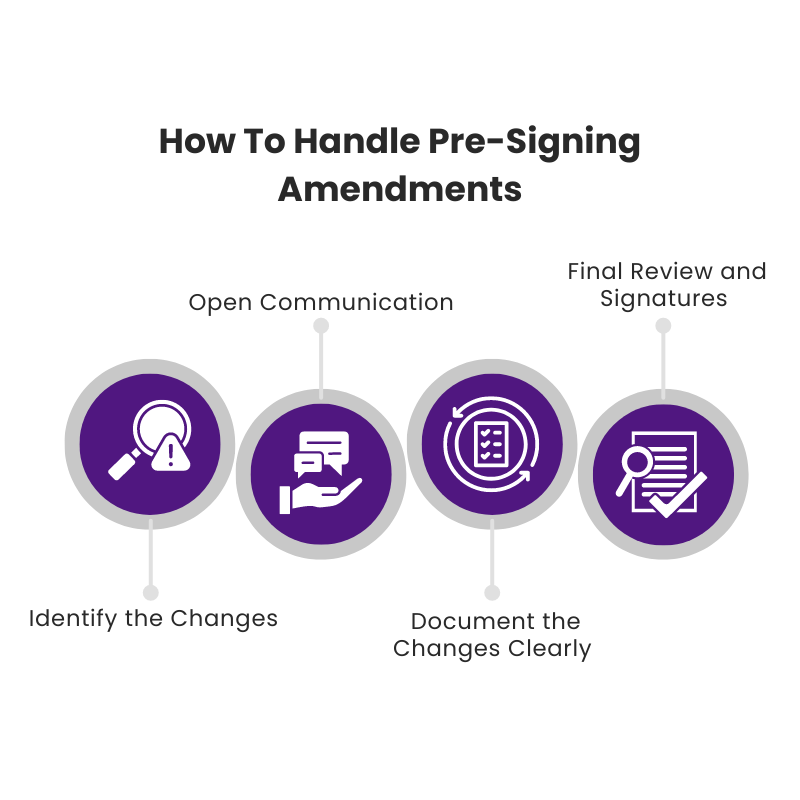
Here’s a breakdown of how to handle these pre-signing amendments:
#1. Identify the Changes
Carefully review the contract and pinpoint the specific clauses or terms requiring modification. This could involve anything from correcting typos and factual errors to adjusting timelines, adding or removing specific deliverables, or altering pricing structures.
#2. Open Communication
Discuss the proposed changes openly and transparently with all parties involved. Explain the reasoning behind the amendments and ensure everyone understands the impact on the overall agreement.
#3. Document the Changes Clearly
There are two main ways to incorporate pre-signing amendments:
- Direct Incorporation: If the changes are minor and straightforward, they can be directly edited into the contract document. Once finalized, ensure all parties have a clean copy with the agreed-upon amendments incorporated.
- Formal Amendment: For more complex changes, consider drafting a separate amendment to contract document. This document should clearly reference the original contract and detail the specific clauses being amended. Attach the amendment to the main contract and ensure all parties sign both documents.
#4. Final Review and Signatures
Once the amendments are incorporated (either directly or via a separate document), all parties involved should meticulously review the final contract. This ensures everyone is on the same page and agrees to the revised terms.
After a final review, proceed with signature collection on the amended contract document(s).
Benefits of Amending Before Signing
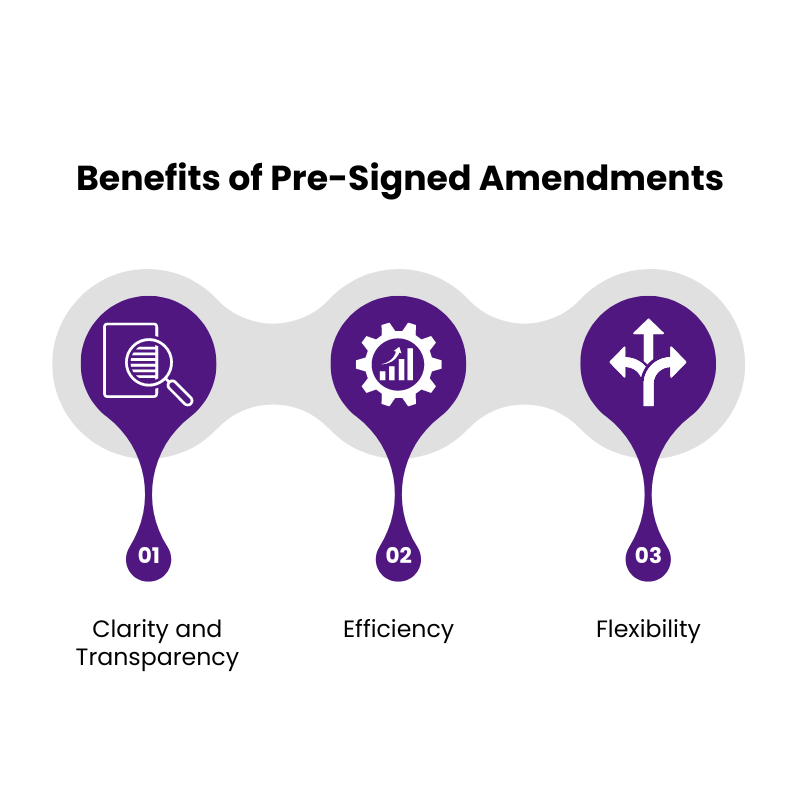
There are several advantages to addressing changes before finalizing the contract:
- Clarity and Transparency: Pre-signing amendments ensure all parties enter the agreement with a clear understanding of the terms and expectations. This reduces the risk of future misunderstandings and disputes.
- Efficiency: Addressing changes upfront avoids the need for a formal amendment process later, potentially saving time and resources.
- Flexibility: The negotiation phase is a prime opportunity to discuss and incorporate adjustments. Addressing them before signing allows for greater flexibility in reaching a mutually agreeable outcome.
Download the Free Contract Amendment Template
To assist you with the process, here’s a free contract amendment template you can download and adapt for your specific needs.
Contract amendments are a valuable tool for ensuring your agreements remain flexible and adaptable in a dynamic business environment.
By following these guidelines and using the provided template as a starting point, you can confidently navigate the process of modifying your contracts while maintaining clear communication and legal compliance.




